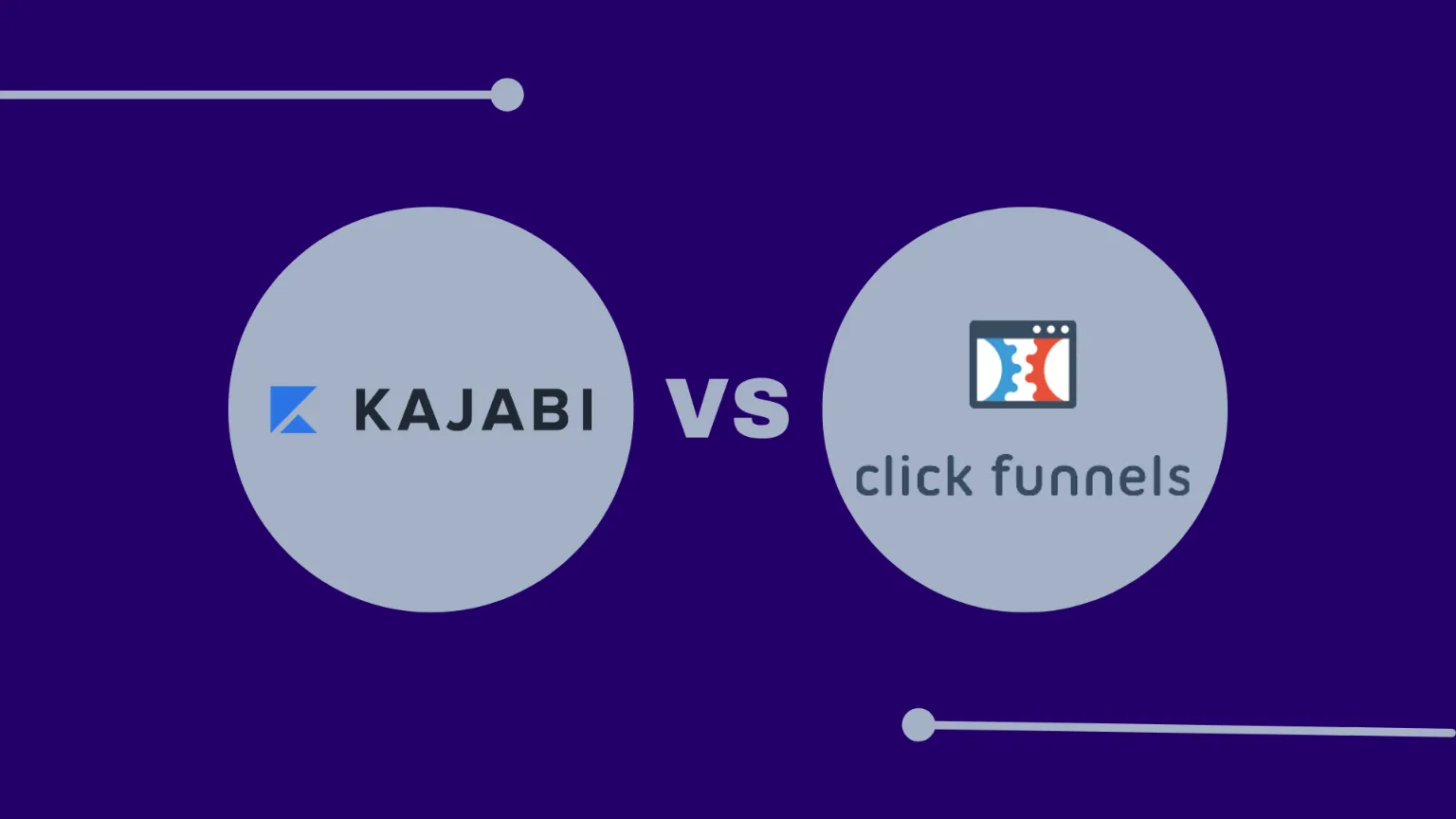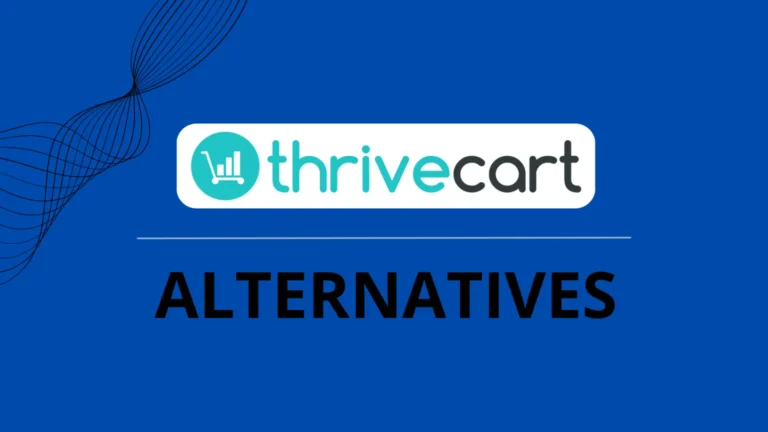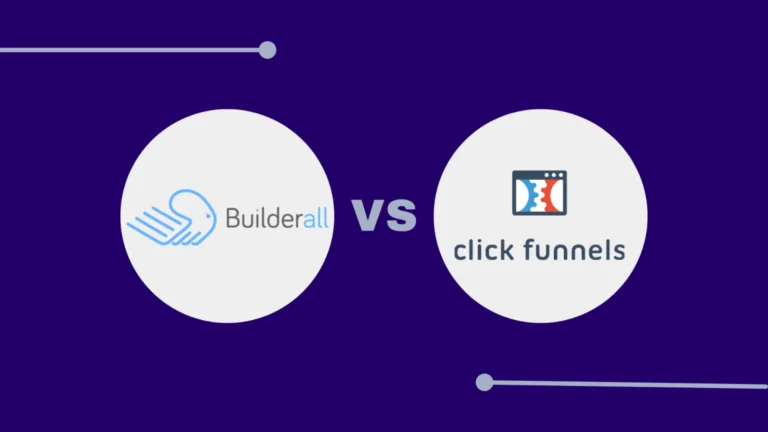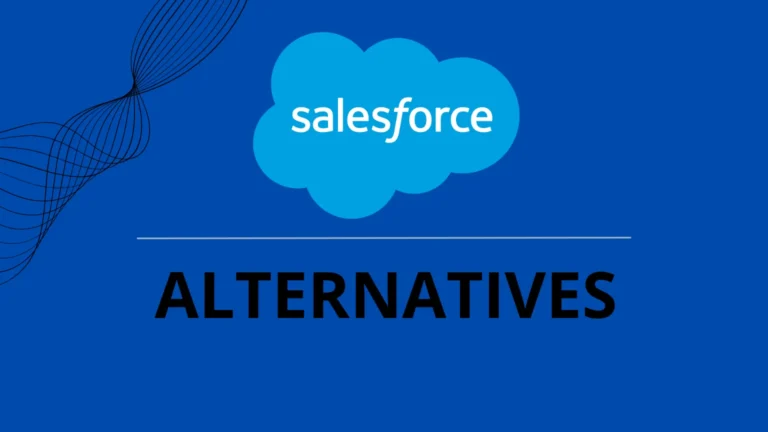Nowadays, when online business is so fast-paced, the wrong choice of tools can bring one down. Kajabi vs ClickFunnels is a common debate among entrepreneurs, course creators, and marketers, as both platforms are designed to help online businesses grow. While they share some similarities, there are also key differences that set them apart.
For those who haven’t explored them yet, I have tested both platforms and will share insights into their features, strengths, and weaknesses to steer you in just the right direction.
Quick Navigation ↓
Understanding Kajabi and ClickFunnels
What Is Kajabi?

Kajabi is an all-in-one platform tailored for creators who want to sell online courses, memberships, and digital products. It offers tools for course creation, website hosting, email marketing, and customer management. Kajabi’s focus is on simplifying the process of building and scaling knowledge-based businesses.
What Is ClickFunnels?
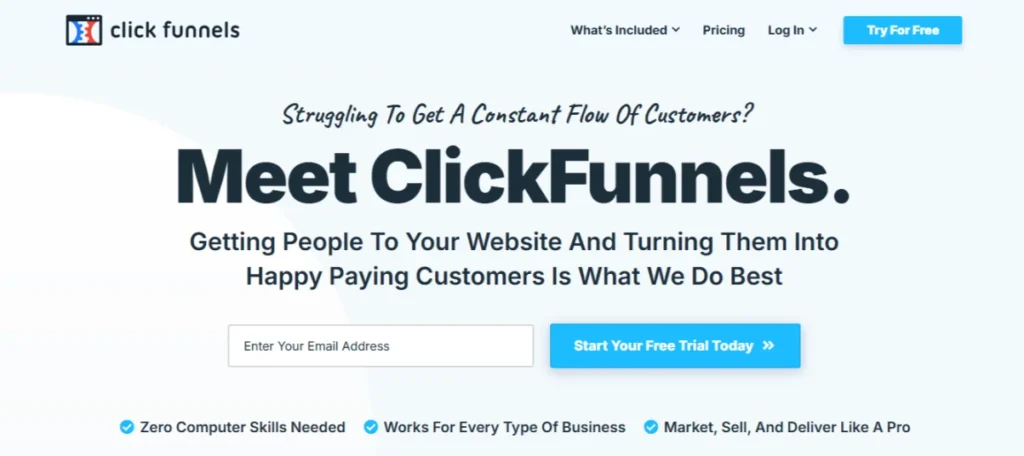
ClickFunnels, on the other hand, is a funnel-building platform that emphasizes lead generation and sales. It’s designed to help businesses convert visitors into paying customers by guiding them through a seamless sales journey. ClickFunnels excels in creating high-converting landing pages, upsell sequences, and sales funnels.
Key Features Comparison
1. Course Creation and Digital Products
Kajabi: Offers robust course-building tools with features like quizzes, assessments, and customizable templates. As a course creator, I found it intuitive to structure and organize my content without needing third-party tools.
ClickFunnels: Lacks dedicated course-building features but can integrate with platforms like Teachable or Thinkific. It’s more suited for selling digital products through funnels rather than hosting them.
2. Sales Funnels and Conversions
Kajabi: Provides basic funnel-building tools but isn’t as advanced or flexible as ClickFunnels. For simpler funnels like lead magnets or webinar registrations, Kajabi gets the job done.
ClickFunnels: The gold standard for funnel creation. It’s packed with pre-designed templates, split-testing features, and a drag-and-drop editor that made it easy for me to create funnels tailored to different campaigns.
3. Website and Blog
Kajabi: Comes with a built-in website builder and blogging functionality. Its sleek designs and templates make it easy to create a professional-looking website.
ClickFunnels: Limited website capabilities. While you can create standalone pages, it’s not ideal for hosting a full-fledged website.
4. Email Marketing
Kajabi: Includes an email marketing suite with automation, segmentation, and analytics. It’s great for nurturing leads and staying connected with students.
ClickFunnels: Offers basic email marketing via Actionetics (now part of ClickFunnels 2.0). It’s more focused on funnel-specific email sequences rather than full-scale campaigns.
5. Integrations
Kajabi: Works seamlessly with popular tools like Zapier, Stripe, and PayPal. I’ve used it to integrate with my existing workflows effortlessly.
ClickFunnels: Offers a wider range of integrations, especially for advanced marketing and CRM tools.
6. Pricing
Kajabi: Basic plans start at $149/month, with all features included. While it’s pricier upfront, it eliminates the need for multiple third-party tools.
ClickFunnels: Startup at $97/month, with higher-tier plans offering advanced features. Additional costs may arise if you need external tools for tasks like email marketing or course hosting.
N.B.: The prices of any plan may change over time. Visit each platform’s official website for the most up-to-date information.
Strengths and Weaknesses
Kajabi
Strengths:
- Ideal for course creators and digital educators.
- User-friendly interface with all-in-one functionality.
- Excellent customer support and resources.
Weaknesses:
- Limited funnel-building capabilities.
- Higher starting price compared to some competitors.
ClickFunnels
Strengths:
- Best-in-class funnel-building tools for conversions.
- Flexible and scalable for different business models.
- Active community and extensive training resources.
Weaknesses:
- Not ideal for hosting courses or memberships.
- Basic website-building features.
Which One Should You Choose?
The right platform depends on your specific needs:
Choose Kajabi if you’re primarily focused on creating and selling online courses, memberships, or coaching programs. Its all-in-one nature is perfect for educators who want simplicity and functionality in one place.
Choose ClickFunnels if your priority is generating leads and driving sales through highly optimized funnels. It’s the go-to platform for marketers and entrepreneurs looking to maximize conversions.
My Personal Take
Having worked extensively with both platforms, I’ve come to appreciate their unique strengths. Kajabi feels like a cozy all-in-one home for my course and content-based projects. It’s streamlined and reliable, giving me peace of mind when managing my digital products.
ClickFunnels, on the other hand, is my go-to weapon for launching aggressive sales campaigns. The way it simplifies the customer journey—from lead capture to upselling—is truly unmatched. In fact, one of my highest-converting sales funnels was built entirely on ClickFunnels, and it remains a cornerstone of my business strategy.
In Summary
Kajabi and ClickFunnels are all good platforms, and whichever one you choose will help take your online business to the next level. The decision ultimately comes down to your goals. Do you want to teach and build a community? Kajabi has you covered. Need to sell products and scale your revenue? ClickFunnels is your ally.
Whichever you choose, investing in the right tool is a step toward achieving online success. So take the plunge, explore their features, and unlock the potential to grow your business!

